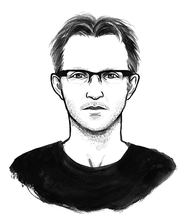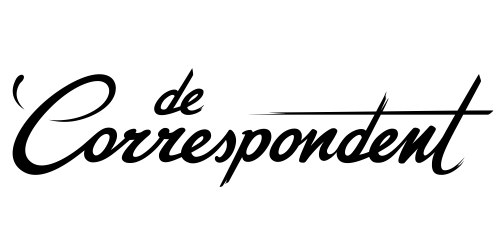Here is an email from Brussels, the capital of Europe – my city. I have torn apart an earlier letter to you, because after the Paris attacks, everything feels different.
I never thought I was going to write this, but I feel fear.
I’ve been in the war in Congo. I spent time with child soldiers and drunk rebels. I’ve survived a plane crash in Bukavu. And yes, I felt fear then.
Three of my friends have been murdered, two in Africa, one in Asia. Five of my friends have been killed in accidents. Their deaths filled me with sadness, not fear.
But now I feel fear in Europe. In Brussels.
 Would you like to hear me read my letter?
A very personal postcard to the rest of the world, by the Belgian writer and historian, David van Reybrouck in Brussels - penned in response to the attacks on Paris of 13th November 2015. David van Reybrouck read it before an audience in Brussels for the programme, World Questions.
Would you like to hear me read my letter?
A very personal postcard to the rest of the world, by the Belgian writer and historian, David van Reybrouck in Brussels - penned in response to the attacks on Paris of 13th November 2015. David van Reybrouck read it before an audience in Brussels for the programme, World Questions.
I feel fear
I feel fear when having a drink with my friends, fear that young people full of resentment could walk into the bar.
I feel fear when taking the metro or watching a movie. What is that noise at the back?
I feel fear when I see all these young men whose dreams have become filled with the dark grit of hatred.
Yet I feel fear when I see aged men, too, who believe that their attacks can stop the other attacks.
I feel fear when I see that fifteen years after 9/11, the same rhetoric is coming back, the same plans, the same coalitions, the same retaliation. Although I fear it didn’t help the first time.
The West tried to eradicate Al Qaeda, which splintered into cells operating from Afghanistan to Yemen to Mali. Fifteen years later, it was surpassed by IS, a much more radical organization. What will happen if the West now tries to eradicate IS? Will there be a third terrorist movement, even more extreme than the two previous ones? One that might even possess nuclear weapons?
The War on Terror II
I feel fear, because the War on Terror has changed our lives, but it has not ended terror.
I feel fear, because like World War I and World War II, we’ll now have to start talking about War on Terror I and War on Terror II. War on Terror I started in 2001 with Bush, War on Terror II started this week, with French President Hollande.
I fear that this second war on terror will kill even more innocent civilians, not only in a Paris concert hall, or on streetside terraces, not only in Afghanistan and Iraq, but now also in hospitals, schools, and houses in Syria and beyond – thus aggravating an already fragile world order.
I fear that War on Terror II will only strengthen the likes of Putin and Assad, who also want to annihilate IS.
I fear that War on Terror II will not stop IS, as it is an underground network with loosely operating cells, almost impossible to wipe out.
And I fear that even if IS could be stopped, this would not necessarily stop the feelings of resentment and frustration in the poor districts of Brussels and Paris and beyond.
I fear that destroying the caliphate will not destroy the anger.
I fear that War on Terror II will not solve, but worsen the situation.
I fear that we need to decide: do we want to destroy IS or do we want to prevent new attacks?
Until we’ve answered that question, I fear more attacks – here in Europe and around the world.
 Dear Mr. President,
I wrote an open letter to President Hollande of France attacking his choice of language during a speech to the French people following Friday's unprecedented terrorist attacks in Paris.
Dear Mr. President,
I wrote an open letter to President Hollande of France attacking his choice of language during a speech to the French people following Friday's unprecedented terrorist attacks in Paris.
 WhatsApp after Paris: 18-year-old Hanna teaches her dad a thing or two
As everyone else was hoisting the French flag on Facebook, a Dutch student named Hanna gave her profile picture the colors of the Syrian flag. The act led to a spirited chat on WhatsApp with her dad, who runs out of comebacks as their conversation goes on. Meanwhile, Hanna shares insights quite a few government leaders could learn from.
WhatsApp after Paris: 18-year-old Hanna teaches her dad a thing or two
As everyone else was hoisting the French flag on Facebook, a Dutch student named Hanna gave her profile picture the colors of the Syrian flag. The act led to a spirited chat on WhatsApp with her dad, who runs out of comebacks as their conversation goes on. Meanwhile, Hanna shares insights quite a few government leaders could learn from.
The BBC World Questions Debate will be broadcast on the BBC World Service in Brussels: at 10 a.m. Central European Time on Thursday, November 19, 9 p.m. CET on Saturday, November 21, and 1 p.m. CET on Sunday, November 22. Also available online . The above text is based on the audio version.
Would you like to find out more about The Correspondent? You can read our mission statement and a selection of translated stories here: www.decorrespondent.nl/en.



Would you like to find out more about The Correspondent? You can read our mission statement and a selection of translated stories here: www.decorrespondent.nl/en.